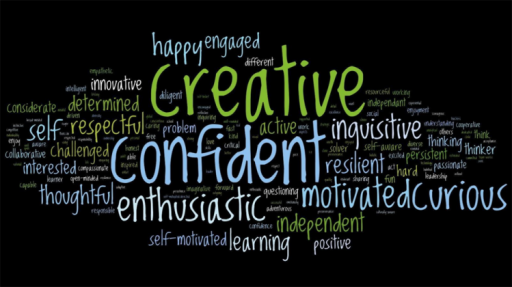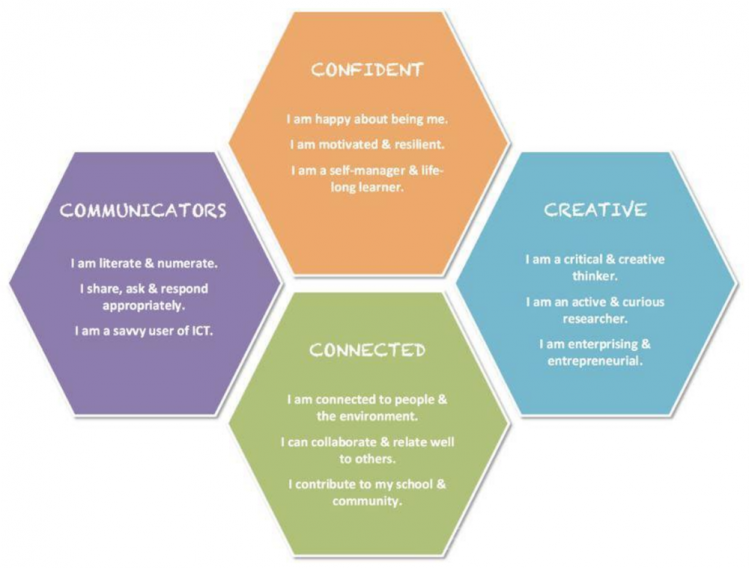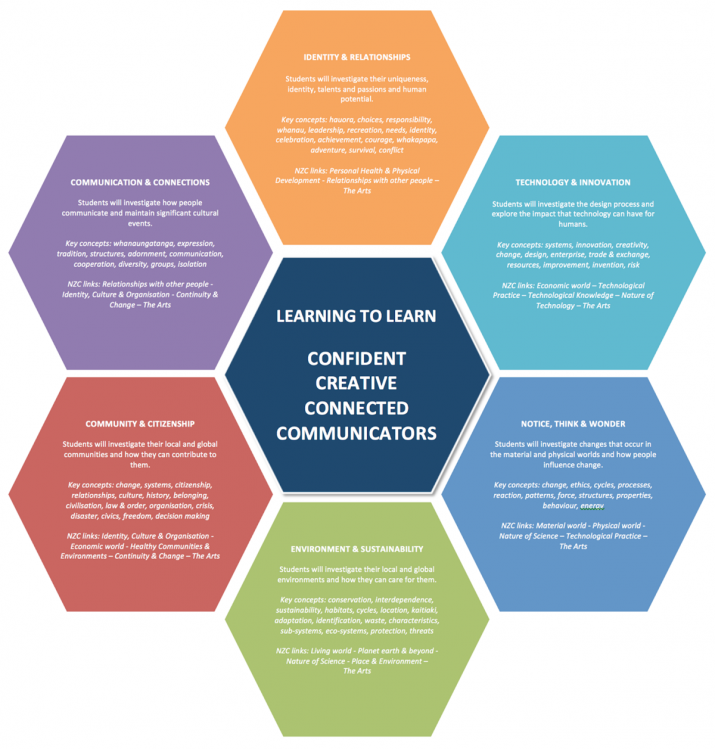In this blog, Bede Gilmore, principal of Winchester School in Palmerston North, outlines some of the processes undertaken, and explains some of the decisions made, when reviewing their school curriculum with their community.
Which is the most important? Knowledge or skills?
Shane Kennedy’s post, "Curriculum, the culprit?" certainly caused me to pause and think more deeply about what is most important, content knowledge or skills. In deciding what is important we often turn to measures of academic performance, and the Programme for International Student Assessment (PISA) has been a favourable measure by many who make decisions about education in our country. If however, we change the lens by which we judge the outcomes of our education system, then we might be surprised by what we learn about our students and what we see as a result of our system.
- What if student well-being or happiness was the most important outcome?
- What if we judged the success of our education system on what we observe in our society?
- Have we got our priorities right?
To clarify, I do believe in content or knowledge teaching because there is a time and place for us as teachers to impart ideas and clarify understandings. However, if all we do is teach content, then we’re neither fulfilling the full vision of The New Zealand Curriculum, nor are we equipping our students with all the necessary skills that they will need to actually "cut it" in today’s society. Also, who decides what’s most important or what will make our youth most likely to succeed?
The only way to really know is to ask your school community. I interpret this as developing a local curriculum. That is, one where our school’s community has decided what will be prioritised. In New Zealand we have the autonomy and the freedom to develop our own curriculum and to decide what we believe is most important for the students of our schools. Asking our community what they value above all else determines what we focus on. And what is focussed on gets achieved.
We’ve placed key competencies as being important within our school curriculum. When I had been principal for a few weeks at my current school, I simply asked, “What kind of learner do you want your child to be?” All responses were Wordled, and the following image helped us see what our community wanted.
There was some initial alignment to Michael Fullan’s New Pedagogies for Deep Learning work, which has six competencies: collaboration, creativity, critical thinking, citizenship, character, and communication. After further consultation with the community, staff and students, we’ve decided on our outcomes for Winchester School.
Students, teachers, and parents were consulted as to what they considered to be important to learn about. As the outcomes emerged it was important to consider what we would learn and how this would support our outcomes. For example, in the Wordle above, our community indicated that we want our children to be confident. Therefore we have to consider what learning experiences will enable this outcome to occur.
I gave thought to where "curiosity" would fit and whether it would be a stand alone outcome. I was conscious of not letting there be too many Cs to remember. Four sounds good when you say them aloud – “Confident, Creative, Connected, Communicators.” The next step was to match these outcomes with learning experiences. It’s important that there is a “connect” between the two. Many schools have values or have created leaver profiles, but many have not matched these valued outcomes to what is actually being taught and learned.
Inquiry curriculum summary
Using an inquiry approach to learning became apparent because this would support our prioritised outcomes. Kath Murdoch’s work (The Power of Inquiry) was a major influence on helping shape what our inquiry curriculum would look like. Having surveyed the community on what they thought was most important to learn enabled us to prioritise learning contexts.
These ideas were coupled with our outcomes and then The New Zealand Curriculum was considered again to ensure all learning areas would be explored by our students.
 Learning to Learn (PDF, 1 MB)
Learning to Learn (PDF, 1 MB)
A local curriculum
Developing a local curriculum is important because the process consolidates what each school does. A local curriculum should not be about cutting anything out, but rather highlighting what is most valued from the school community's perspective. A local curriculum enables a common language to be developed within each school and is the framework for planning. The review process gives a focus and a reason for doing what we do. Considering what the NZC states and ensuring that all learning areas are included is also an important part of the process.
Our New Zealand Curriculum places a heavy emphasis on the key competencies, and some critics would question how these outcomes might be measured. Questions asked could include: "How will our school know if students are improving at being confident or creative?" This is a fair question. We are embedding our outcomes into reporting to parents so that progress and achievement can be seen over time. We are developing key descriptors for each of our four outcomes so we can report against those.
We have now obtained feedback from parents about this aspect of the report and most of those who responded feel informed about these outcomes and what they mean for their children and that, coupled with a mid year interview, things are well explained. We now have school wide data that enables us to identify areas of strength or weakness in a class, team, or across the school.
When placing key competencies so importantly within our curriculum, a key component in knowing whether students are developing their skills is through teachers observing students. Kath Murdoch has a term for this – “release”. She names "release" as one of nine key teacher attributes in her book, "The Power of Inquiry". A teacher who can release themselves from the learning process for periods of time is able to observe what is actually happening in the class.
There are many facets to consider when developing a local curriculum. Our next step is to add the Māori component to the 4Cs. We wish to have translations for each of our 4Cs and to have an accompanying whakataukī for each aspect.
I hope that outlining the process we undertook is useful for any reader considering what process they might use as they review their own school curriculum.
Related resources
Strengthening local curriculum
This section offers information, tools, suggested areas of focus, and inspirational stories to help you make decisions about how to give effect to the national curriculum at your place.





